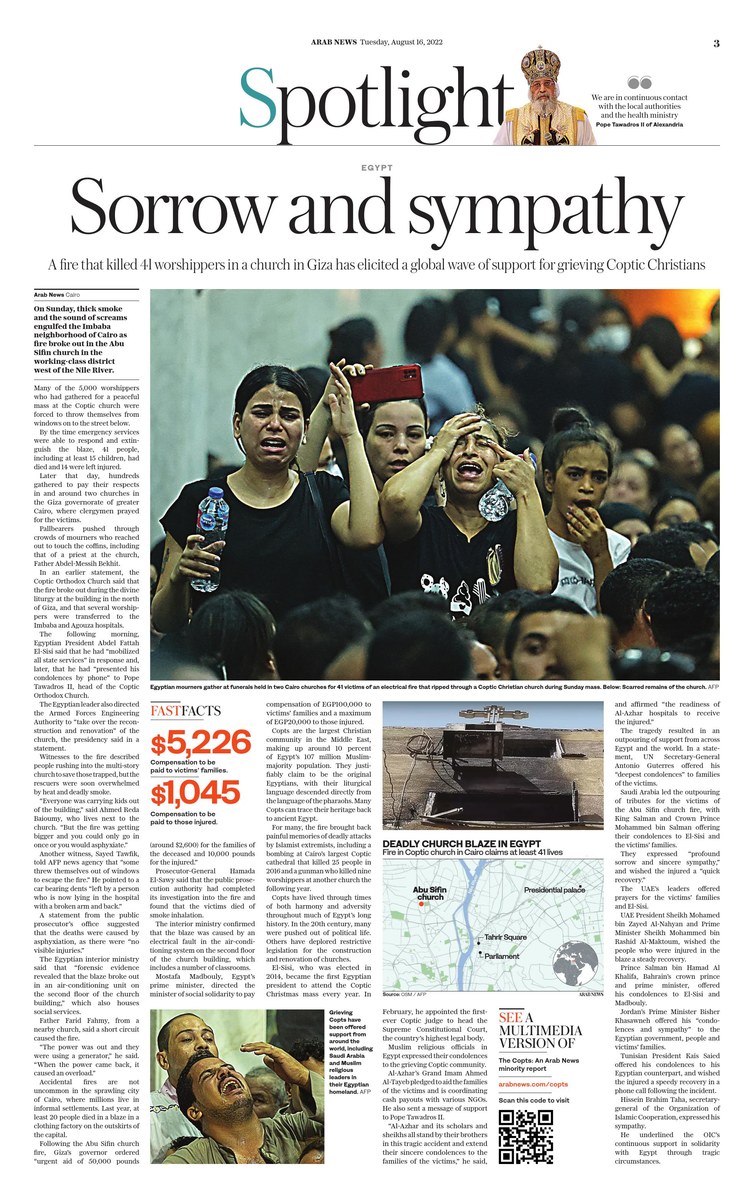CAIRO: On Sunday, thick smoke and the sound of screams engulfed the Imbaba neighborhood of Cairo as fire broke out at the Abu Sifin church in the low income district west of the Nile River.
Many of the 5,000 worshippers who had gathered for a peaceful mass at the Coptic church were forced to throw themselves from windows on to the street below.
By the time emergency services were able to respond and extinguish the blaze, 41 people, including 15 children, had died and 14 were left injured.
Later that day, hundreds gathered to pay their respects in and around two churches in the Giza governorate of greater Cairo, where clergymen prayed for the victims.
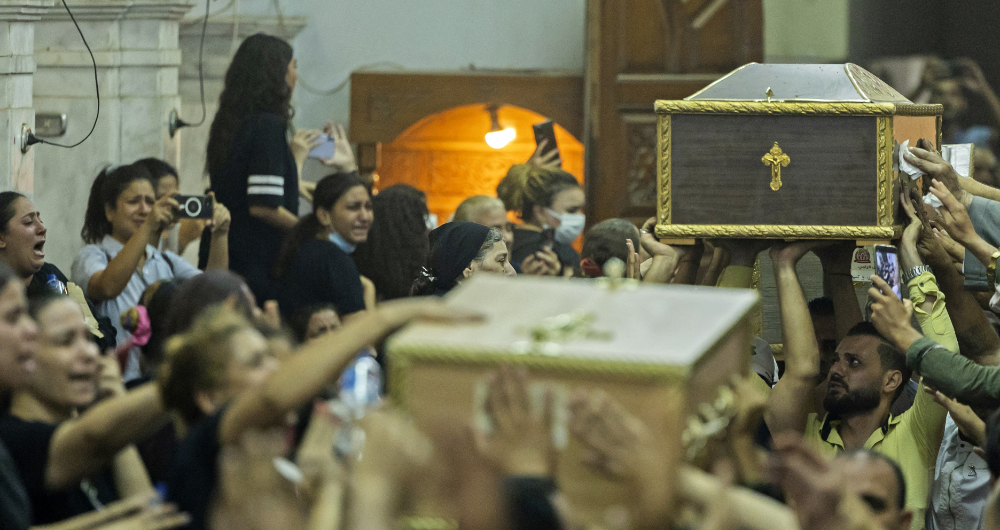
Copts are the largest Christian community in the Middle East. (AFP)
Pallbearers pushed through crowds of weeping mourners who reached out to touch the coffins, including that of a priest at the church, Father Abdel-Messih Bekhit.
In an earlier statement, the Coptic Orthodox Church said that the fire broke out during the divine liturgy at the building in the north of Giza, and that several worshippers were transferred to the Imbaba and Agouza hospitals.
The following morning, Egyptian President Abdel Fattah El-Sisi said that he had “mobilized all state services” in response and, later, that he had “presented his condolences by phone” to Pope Tawadros II, head of the Coptic Orthodox Church.
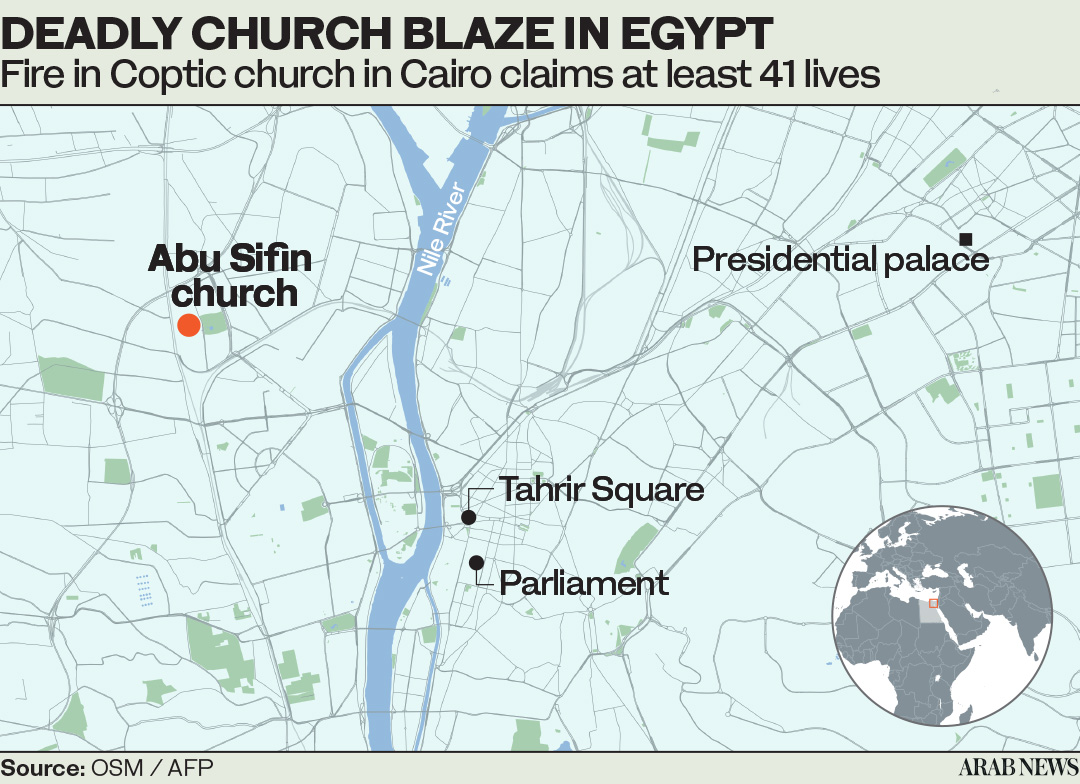
The Egyptian leader also directed the Armed Forces Engineering Authority to “take over the reconstruction and renovation” of the church, the presidency said in a statement.
Witnesses to the fire described people rushing into the multi-story church to save those trapped, but the rescuers were soon overwhelmed by heat and deadly smoke.
“Everyone was carrying kids out of the building,” said Ahmed Reda Baioumy, who lives next to the church. “But the fire was getting bigger and you could only go in once or you would asphyxiate.”
Another witness, Sayed Tawfik, told AFP news agency that “some threw themselves out of windows to escape the fire.” He pointed to a car bearing dents “left by a person who is now lying in the hospital with a broken arm and back.”
A statement from the public prosecutor’s office suggested that the deaths were caused by asphyxiation, as there were “no visible injuries.”
INNUMBERS
• $5,226 Compensation to be paid to victims’ families.
• $1,045 Compensation to be paid to those injured.
The Egyptian interior ministry said that “forensic evidence revealed that the blaze broke out in an air-conditioning unit on the second floor of the church building,” which also houses social services.
Father Farid Fahmy, from a nearby church, said a short circuit caused the fire.
“The power was out and they were using a generator,” he said. “When the power came back, it caused an overload.”
Accidental fires are not uncommon in the sprawling city of Cairo, where millions live in informal settlements. Last year, at least 20 people died in a blaze in a clothing factory on the outskirts of the capital.
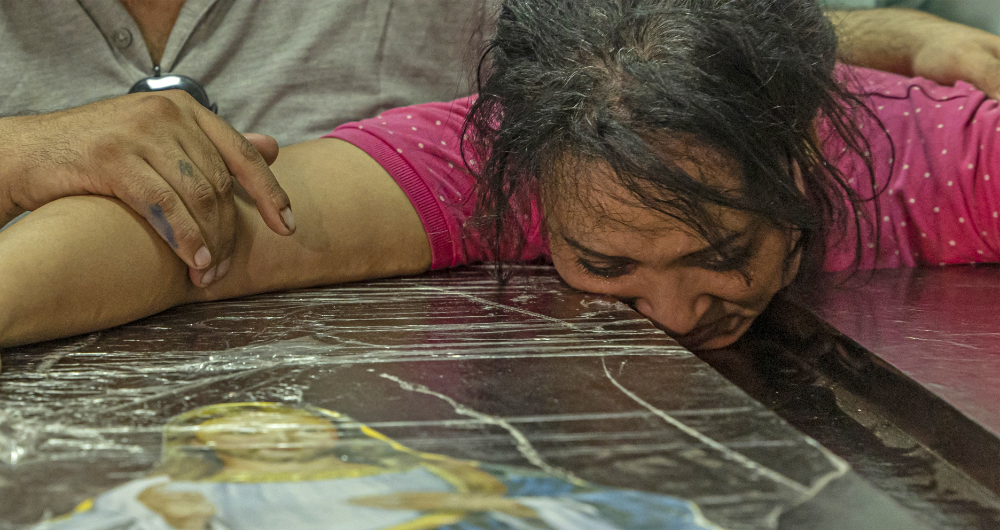
The deaths were caused by asphyxiation. (AFP)
Following the Abu Sifin church fire, Giza’s governor ordered “urgent aid of 50,000 pounds (around $2,600) for the families of the deceased and 10,000 pounds for the injured.”
Prosecutor-General Hamada El-Sawy said that the public prosecution authority had completed its investigation into the fire and found that the victims died of smoke inhalation.
The interior ministry confirmed that the blaze was caused by an electrical fault in the air-conditioning system on the second floor of the church building, which includes a number of classrooms.
Mostafa Madbouly, Egypt’s prime minister, directed the minister of social solidarity to pay compensation of EGP100,000 to victims’ families and a maximum of EGP20,000 to those injured.
Copts are the largest Christian community in the Middle East, making up around 10 percent of Egypt’s 107 million Muslim-majority population. They justifiably claim to be the original Egyptians, with their liturgical language descended directly from the language of the pharaohs. Many Copts can trace their heritage back to ancient Egypt.
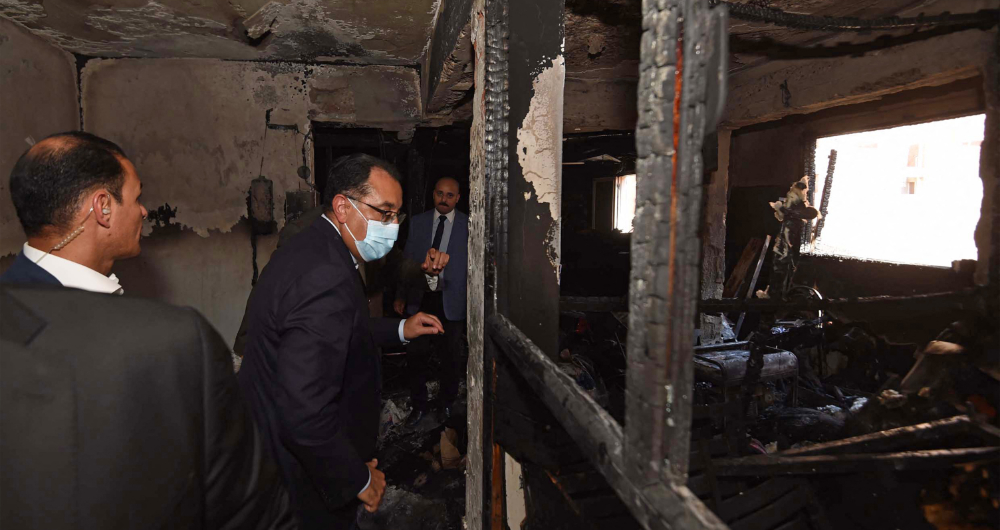
The blaze broke out in an air-conditioning unit on the second floor. according to authorities. (AFP)
For many, the fire brought back painful memories of deadly attacks by Islamist extremists, including a bombing at Cairo’s largest Coptic cathedral that killed 25 people in 2016 and a gunman who killed nine worshippers at another church the following year.
Copts have lived through times of both harmony and adversity throughout much of Egypt’s long history. In the 20th century, many were pushed out of political life. Others have deplored restrictive legislation for the construction and renovation of churches.
El-Sisi, who was elected in 2014, became the first Egyptian president to attend the Coptic Christmas mass every year. In February, he appointed the first-ever Coptic judge to head the Supreme Constitutional Court, the country’s highest legal body.
Muslim religious officials in Egypt expressed their condolences to the grieving Coptic community.
Al-Azhar’s Grand Imam Ahmed Al-Tayeb pledged to aid the families of the victims and is coordinating cash payouts with various NGOs. He also sent a message of support to Pope Tawadros II.
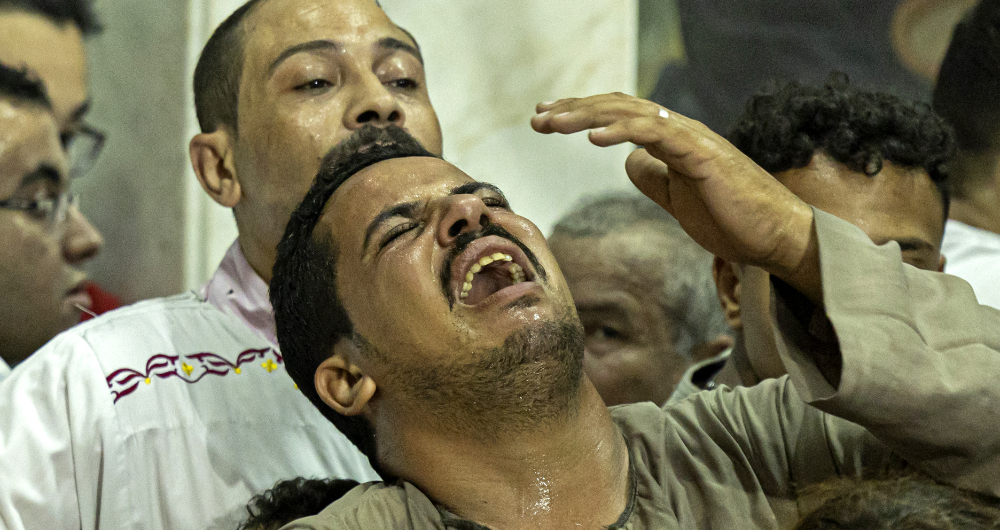
Many of the 5,000 worshippers who had gathered for a peaceful mass at the Coptic church were forced to throw themselves from windows on to the street below. (AFP)
“Al-Azhar and its scholars and sheikhs all stand by their brothers in this tragic accident and extend their sincere condolences to the families of the victims,” he said, and affirmed “the readiness of Al-Azhar hospitals to receive the injured.”
The tragedy resulted in an outpouring of support from across Egypt and the world. In a statement, UN Secretary-General Antonio Guterres offered his “deepest condolences” to families of the victims.
King Salman and Crown Prince Mohammed bin Salman of Saudi Arabia offered their condolences to El-Sisi and the victims’ families. They expressed “profound sorrow and sincere sympathy,” and wished the injured a “quick recovery.”
The UAE’s leaders offered prayers for the victims’ families and El-Sisi. President Sheikh Mohamed bin Zayed Al-Nahyan and Prime Minister Sheikh Mohammed bin Rashid Al-Maktoum wished the people who were injured in the blaze a steady recovery.
Prince Salman bin Hamad Al Khalifa, Bahrain’s crown prince and prime minister, offered his condolences to El-Sisi and Madbouly.
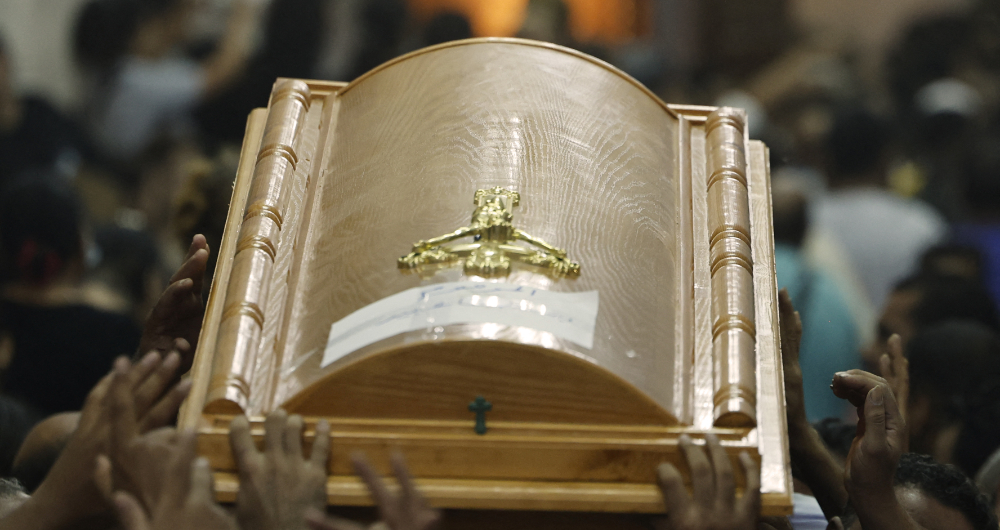
Regional leaders have sent their condolences after the tragedy. (AFP)
Jordan’s Prime Minister Bisher Khasawneh offered his “condolences and sympathy” to the Egyptian government, people and victims’ families.
Tunisian President Kais Saied offered his condolences to his Egyptian counterpart, and wished the injured a speedy recovery in a phone call following the incident.
Hissein Brahim Taha, secretary-general of the Organization of Islamic Cooperation, expressed his sympathy.
He stressed the OIC’s continuous support in solidarity with Egypt through tragic circumstances.
